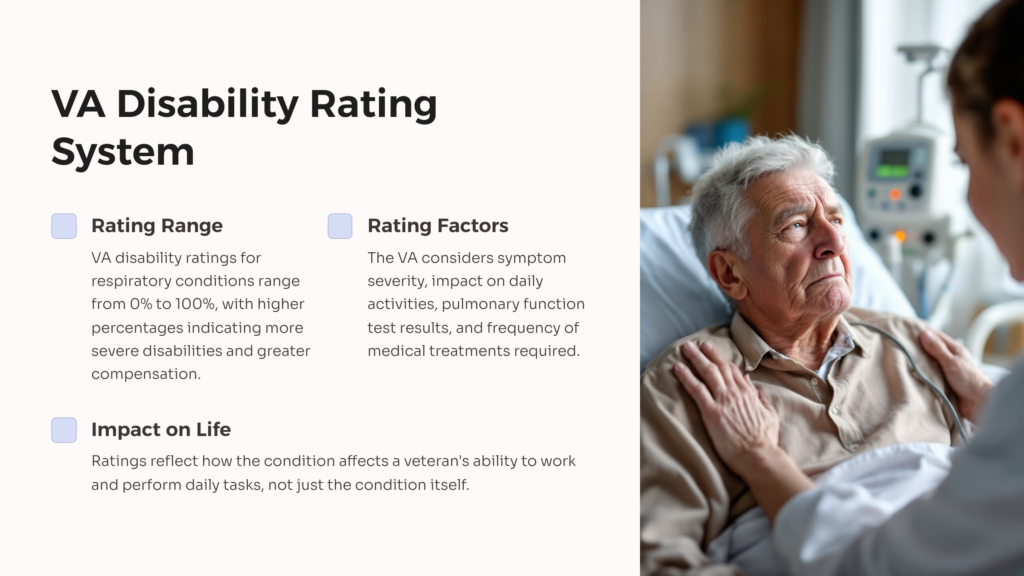UHC Medicare Advantage is a type of health insurance plan offered by UnitedHealthcare (UHC) to eligible individuals who are enrolled in Medicare. Medicare Advantage plans are also known as Medicare Part C plans, and they are offered by private insurance companies like UHC as an alternative to Original Medicare (Part A and Part B).
UHC Medicare Advantage plans provide all the benefits of Original Medicare, but they may also offer additional benefits such as prescription drug coverage, vision care, dental care, hearing aids, and wellness programs. These plans may also have different rules and cost-sharing requirements than Original Medicare, such as copays, deductibles, and coinsurance.
If you are eligible for Medicare and considering a UHC Medicare Advantage plan, it’s important to compare the plan’s benefits, costs, and provider networks to determine if it’s the right fit for your healthcare needs and budget.
UHC Medicare plans offer different levels of coverage and may include benefits beyond what Original Medicare provides. These benefits may include prescription drug coverage, dental, vision, hearing, and wellness programs. UHC also offers Medicare Supplement Insurance plans (also known as Medigap) that help pay some of the out-of-pocket costs that Original Medicare does not cover, such as deductibles, coinsurance, and copayments.
If you are eligible for Medicare and considering a UHC Medicare plan, it’s important to review the plan’s benefits, provider network, and costs to ensure it meets your healthcare needs and budget.
UHC Medicare Type Of Plans Offer:
- Medicare Advantage plans: These are also known as Medicare Part C plans and are offered by private insurance companies like UHC. Medicare Advantage plans provide all the benefits of Original Medicare (Part A and Part B) and may offer additional benefits such as prescription drug coverage, dental, vision, hearing, and wellness programs.
- Medicare Supplement Insurance plans (Medigap): These plans help pay for some of the out-of-pocket costs that Original Medicare does not cover, such as deductibles, coinsurance, and copayments. Medigap plans are designed to work alongside Original Medicare and cannot be used with Medicare Advantage plans.
- Medicare Prescription Drug plans (Part D): These plans are designed to help individuals with Medicare cover the cost of prescription drugs. They are offered by private insurance companies like UHC and can be added to Original Medicare or a Medicare Advantage plan that does not include prescription drug coverage.
- Special Needs Plans (SNPs): These are Medicare Advantage plans designed for individuals with specific chronic or disabling conditions, such as diabetes, heart failure, or dementia.
- Chronic Special Needs Plans (CSNPs): These are Medicare Advantage plans designed for individuals with certain chronic conditions, such as diabetes, cardiovascular disorders, and chronic lung disorders.
- Dual Eligible Special Needs Plans (D-SNPs): These are Medicare Advantage plans designed for individuals who are eligible for both Medicare and Medicaid.
It’s important to review each plan’s benefits, provider network, and costs to determine which UHC Medicare plan is the best fit for your healthcare needs and budget.
UHC Medicare Advantage Plans:
- Health Maintenance Organization (HMO) plans: These plans generally require you to receive care from in-network providers, except in emergency situations. They may also require you to choose a primary care physician (PCP) and get referrals to see specialists.
- Preferred Provider Organization (PPO) plans: These plans generally offer more flexibility in choosing healthcare providers, but you may pay more for out-of-network care.
- Private Fee-for-Service (PFFS) plans: These plans determine how much they will pay healthcare providers and how much you will pay for care. You may need to see healthcare providers who accept the plan’s payment terms.
- Special Needs Plans (SNPs): These plans are designed for individuals with specific chronic or disabling conditions, such as diabetes, heart failure, or dementia.
- Dual Eligible Special Needs Plans (D-SNPs): These plans are designed for individuals who are eligible for both Medicare and Medicaid.
When considering UHC Medicare Advantage plans, it’s important to review the plan’s benefits, provider network, and costs to ensure it meets your healthcare needs and budget. Some UHC Medicare Advantage plans may have different premiums, deductibles, copayments, and coinsurance than others. Additionally, the plan’s provider network may impact which healthcare providers you can see and the cost of care.
UHC Medicare Supplement Insurance plans (Medigap):
- Medigap Plan A: This plan covers basic benefits such as Medicare Part A coinsurance and hospital costs for up to 365 days after Medicare benefits are used up.
- Medigap Plan B: This plan covers the same basic benefits as Plan A, plus Medicare Part A deductible and skilled nursing facility coinsurance.
- Medigap Plan C: This plan covers the same basic benefits as Plan B, plus Medicare Part B deductible, foreign travel emergency care, and excess charges for Medicare-approved amounts.
- Medigap Plan F: This plan covers the same basic benefits as Plan C, plus Part B excess charges, and the Medicare Part B deductible.
- Medigap Plan G: This plan covers the same basic benefits as Plan C, except it does not cover the Medicare Part B deductible.
- Medigap Plan K: This plan covers a percentage of the cost-sharing for Medicare-covered services, and includes an out-of-pocket maximum.
- Medigap Plan L: This plan covers a percentage of the cost-sharing for Medicare-covered services, but with lower cost-sharing than Plan K.
- Medigap Plan N: This plan covers the same basic benefits as Plan C, except it may require a copayment for some office visits and emergency room visits.
When considering UHC Medigap plans, it’s important to review the plan’s benefits, provider network, and costs to ensure it meets your healthcare needs and budget. Medigap plans are standardized across different insurance companies, so the benefits will be the same regardless of the insurer, but premiums may vary.
UHC Medicare Prescription Drug plans (Part D):
- Medicare Part D Prescription Drug Plans: These plans offer coverage for a wide range of prescription drugs and are available to individuals who have Original Medicare, as well as those who have a Medicare Advantage plan that does not include prescription drug coverage.
- Medicare Advantage Prescription Drug Plans: These plans combine Medicare Parts A, B, and D coverage into a single plan. They offer all the benefits of Original Medicare, plus additional benefits such as prescription drug coverage, and may also offer extra benefits such as dental, vision, and hearing coverage.
When considering UHC Part D plans, it’s important to review the plan’s formulary, which is a list of covered prescription drugs, to ensure that your medications are covered. You should also consider the plan’s cost-sharing, including premiums, deductibles, copayments, and coinsurance, to ensure that the plan fits within your budget. Additionally, you should review the plan’s pharmacy network to ensure that you have access to pharmacies in your area that accept the plan.
UHC Special Needs Plans (SNPs):
- Chronic Condition SNPs: These plans are designed for individuals with certain chronic conditions, such as diabetes, heart failure, or COPD.
- Dual Eligible SNPs: These plans are designed for individuals who are eligible for both Medicare and Medicaid.
- Institutional SNPs: These plans are designed for individuals who reside in a nursing home or other long-term care facility.
When considering UHC SNPs, it’s important to review the plan’s benefits, provider network, and costs to ensure it meets your healthcare needs and budget. Some UHC SNPs may offer additional benefits beyond what is offered by Original Medicare, such as dental, vision, and hearing coverage, as well as wellness programs. Additionally, you should review the plan’s provider network to ensure that the healthcare providers you need are included in the plan. SNPs generally require you to receive care from in-network providers, except in emergency situations. Finally, you should consider the plan’s costs, including premiums, deductibles, copayments, and coinsurance, to ensure that the plan fits within your budget.
UHC Chronic Special Needs Plans (CSNPs):
- Focus on chronic conditions: UHC CSNPs are designed specifically for individuals with chronic conditions. The plans provide access to specialized care and management programs to help individuals manage their conditions and improve their health outcomes.
- Comprehensive coverage: UHC CSNPs provide comprehensive coverage that includes all of the benefits offered by Original Medicare, as well as additional benefits that are tailored to the needs of individuals with chronic conditions, such as prescription drug coverage, vision and hearing benefits, and wellness programs.
- Care coordination: UHC CSNPs provide care coordination services to help individuals manage their healthcare needs. The plans have a team of healthcare providers, including doctors, nurses, and care managers, who work together to provide coordinated and comprehensive care.
- Network of healthcare providers: UHC CSNPs have a network of healthcare providers who specialize in treating individuals with chronic conditions. The plans work with these providers to ensure that individuals receive the care and treatment they need.
- Cost-saving benefits: UHC CSNPs may offer cost-saving benefits, such as lower copayments or deductibles, to help individuals manage their healthcare costs.
When considering UHC CSNPs, it’s important to review the plan’s benefits, provider network, and costs to ensure it meets your healthcare needs and budget. Additionally, you should consider the plan’s care coordination services and specialized care programs to ensure that they meet your specific healthcare needs.
UHC Dual Eligible Special Needs Plans (D-SNPs):
- Dual-eligible coverage: UHC D-SNPs provide comprehensive coverage that includes all of the benefits offered by Original Medicare, as well as additional benefits that are tailored to the needs of individuals who are eligible for both Medicare and Medicaid.
- Care coordination: UHC D-SNPs provide care coordination services to help individuals manage their healthcare needs. The plans have a team of healthcare providers, including doctors, nurses, and care managers, who work together to provide coordinated and comprehensive care.
- Network of healthcare providers: UHC D-SNPs have a network of healthcare providers who specialize in treating individuals who are eligible for both Medicare and Medicaid. The plans work with these providers to ensure that individuals receive the care and treatment they need.
- Cost-saving benefits: UHC D-SNPs may offer cost-saving benefits, such as lower copayments or deductibles, to help individuals manage their healthcare costs.
- Integrated benefits: UHC D-SNPs integrate Medicare and Medicaid benefits to provide seamless coverage and reduce the complexity of managing multiple insurance programs.
When considering UHC D-SNPs, it’s important to review the plan’s benefits, provider network, and costs to ensure it meets your healthcare needs and budget. Additionally, you should consider the plan’s care coordination services to ensure that they meet your specific healthcare needs. Finally, you should review the plan’s integrated benefits to ensure that it provides seamless coverage and simplifies the management of your healthcare coverage.
UHC Medicare Plan Advantage And Disadvantage:
Advantages:
- Comprehensive coverage: UHC Medicare Advantage plans offer comprehensive coverage that includes all of the benefits offered by Original Medicare, as well as additional benefits that are tailored to the needs of individuals, such as prescription drug coverage, vision and hearing benefits, and wellness programs.
- Lower out-of-pocket costs: UHC Medicare Advantage plans may have lower copayments, deductibles, and coinsurance than Original Medicare, which can help individuals save money on their healthcare costs.
- Care coordination: UHC Medicare Advantage plans provide care coordination services to help individuals manage their healthcare needs. The plans have a team of healthcare providers, including doctors, nurses, and care managers, who work together to provide coordinated and comprehensive care.
- Value-added services: UHC Medicare Advantage plans may offer value-added services, such as fitness programs, telemedicine services, and caregiver support, which can improve individuals’ health outcomes and quality of life.
Disadvantages:
- Provider network: UHC Medicare Advantage plans have a network of healthcare providers, and individuals may need to choose healthcare providers within the network to receive the full benefits of the plan. If individuals want to see a healthcare provider outside of the network, they may need to pay more out-of-pocket costs or may not be covered at all.
- Prior authorization requirements: UHC Medicare Advantage plans may have prior authorization requirements for certain medical procedures, tests, or medications, which can delay or restrict access to care.
- Plan changes: UHC Medicare Advantage plans may change their benefits, provider network, or costs from year to year, which can make it difficult for individuals to plan for their healthcare costs.
- Availability: UHC Medicare Advantage plans may not be available in all areas, and individuals may need to choose a different plan or stick with Original Medicare if UHC Medicare Advantage plans are not available in their area.
When considering UHC Medicare Advantage plans, it’s important to review the plan’s benefits, provider network, costs, and any prior authorization requirements to ensure it meets your healthcare needs and budget. Additionally, you should review the plan’s value-added services and care coordination services to ensure that they meet your specific healthcare needs. Finally, you should consider the plan’s availability in your area and the potential for plan changes from year to year.








